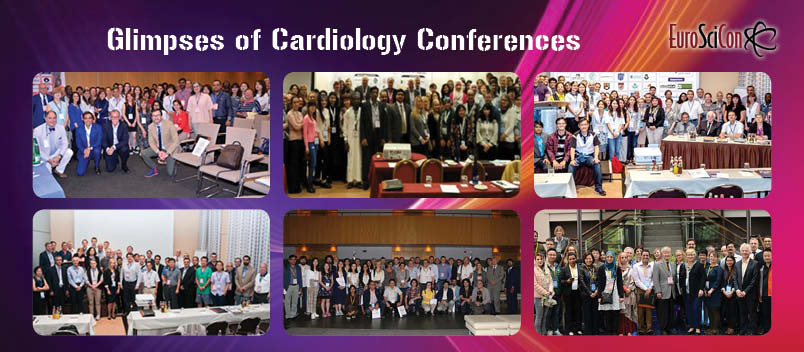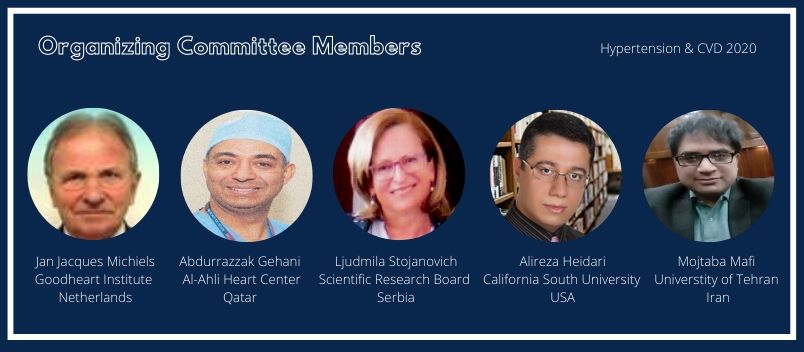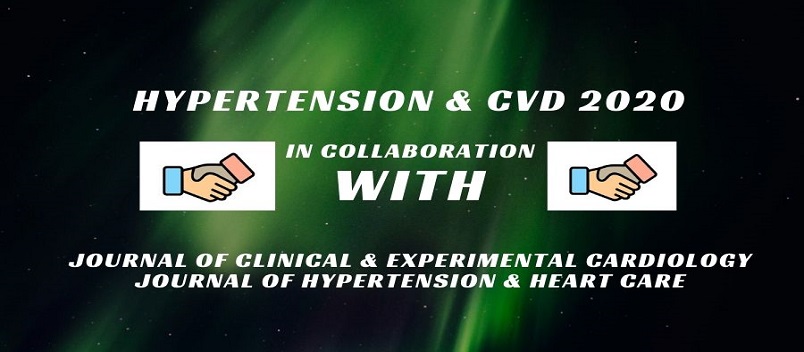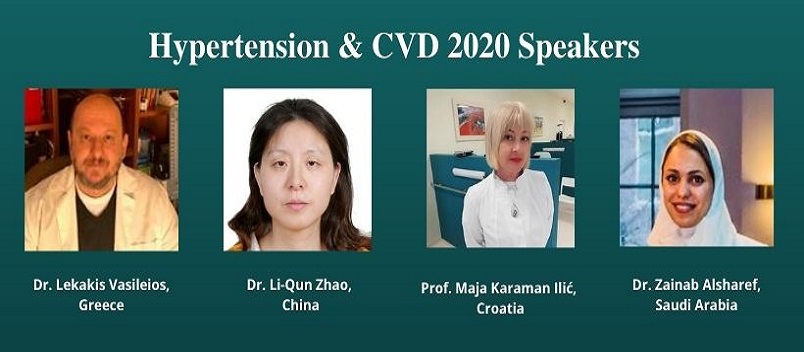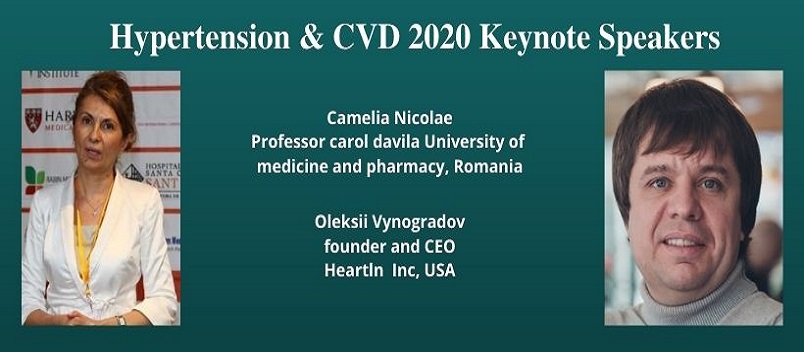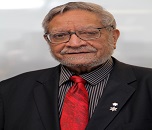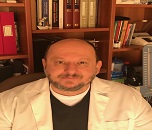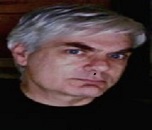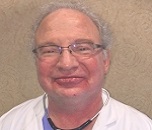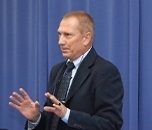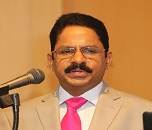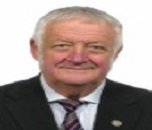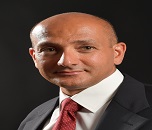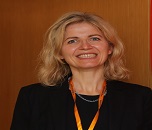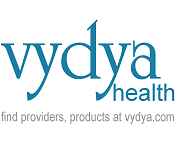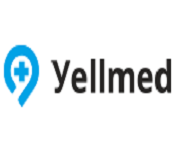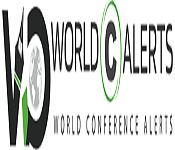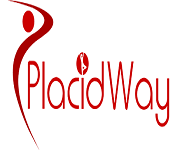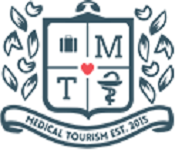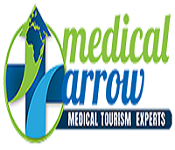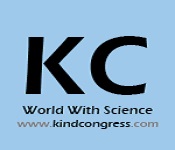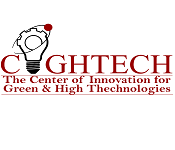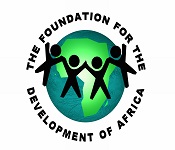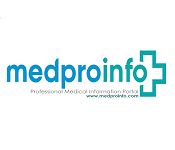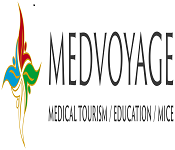Hypertension & CVD 2020
About Conference
Hypertension and Cardiovascular Diseases 2020 welcomes you for the second edition this time at Vienna, Austria during October 05-06, 2020.
Hypertension and Cardiovascular Diseases 2020 will be an examination of the newest successions in Heart disease recovery and prevention and on new analysis of innovation within the field of Cardiac speciality.
Discussions on new Cardiac technology advancement in the field of Hypertension, Cardiovascular diseases, Stem cell research on heart, Congestive heart failure, current practices in Cardiovascular therapy, Ischemic heart disease and Silent ischemia, Heart disease management and more.
Cardiac symposiums are rejuvenating. It is inspirational and energizing opportunity to connect with the greater scientific community, where you get to know about new cardiac strategies to approach your research. To contemplate the bigger picture and establish collaborations. A good conference has the capacity to bring a scientist within you; Cardiology Conferences are very helpful for learning about new areas and publications of cardiology.
This Hypertension and Cardiovascular Diseases 2020 is going to be an International event; We tend to have a global faculty who are leading specialists in the field of cardiology. Gain valuable awareness from these distinguished professionals from accomplished establishments.
Why to attend Hypertension and Cardiovascular Diseases 2020???
With individuals from all around the globe focused on getting some answers concerning Cardiology, this is one opportunity where you can accomplish the greatest accumulation of personalities from the mending focuses, universities, bunch, etc. These Cardiology Conferences and European Cardiology Congress in 2020 will coordinate and dissolve information, meeting with frequent outline and potential investigators and get name affirmation at this 2-day event. Broadly acclaimed speakers, the most recent frameworks, methodologies, and the most current updates in Cardiology field are indications of this conference. This World Cardiology Congress, Cardiology Gatherings, Cardiology events and Cardiology Meetings will help in building organization, B2B uniting amidst specialists and academicians. The objective of this meeting is to stimulate new ideas for treatment and analyze the current market for the future direction of cardiovascular drugs, devices, and diagnostics, with a greater prominence on newer products that will be beneficial across the spectrum of Cardiology. Lectures will offer a comprehensive high-tech apprise of the clinical uses of various practices in the diagnosis, prognosis, and management of common heart diseases.
This Heart Congress will be a truly international event; we expect to welcome healthcare professionals from over 100 countries. We also have global faculty who are leading experts in their fields.
Scope & Importance:
Hypertension and Cardiovascular Diseases 2020 will seam world-class educators, scientists and cardiologists to converse diverse procedures for Heart Disorder Remediation, Electrocardiography, Hypertension, Heart Failure, Cardiovascular Diseases, Nuclear Cardiology.
Cardiology Conferences, Cardiology Meetings are envisioned to deliver flexible information that will keep cooperative experts next to each other of the topics impacting the anticipation, discovery and treatment of cardiovascular infection. The world is becoming gradually exposed to public health challenges and risks for heart diseases. This Conference provides a unique prospect for Academicians, Educators & Clinicians as well as for Experts and Scholars of Higher Education from across the globe to convey and share unique ideas on crucial matters and latest trends in the field of Cardiology. Starting from prevention through optimal care and finally the targeted treatment modes & rehabilitation, the whole range of Cardiovascular Disease shall be presented with world-class faculty, researchers, and mentors as well as healthcare clinical professionals.
With individuals from all around the globe focused on getting some answers concerning Cardiology, this is a platform where you can accomplish the greatest accumulation of personalities from the mending focuses, Universities, bunch, etc.
Target Audience:
• Doctors
• Cardiac Nurses & Nurse Practitioners
• Cardiology Associations and Societies
• Medical colleges and universities
• Manufacturing Medical Devices Companies
• Students
Main Sessions
Track 1: Hypertension: Advanced Treatment Approaches
High blood pressure or hypertension increases the risk of heart disease and stroke. Hypertension risk factors include obesity, drinking too much alcohol, smoking, and family history. Beta-blockers are a common treatment for hypertension. High blood pressure usually does not cause symptoms. Long term high blood pressure is a main risk factor for Coronary artery disease, Stroke, Heart failure, Peripheral vascular disease, Vision loss, and Chronic kidney disease.
Pulmonary Arterial Hypertension
Hypertension and Sexual dysfunction
Hypertension and Pregnancy women
Hypertension and Cardiac arrest
Hypertension and Chronic Renal Failure
Complications of Uncontrolled Hypertension
Track 2: Hypertensive Heart Diseases & Heart Failure
Hypertensive heart disease refers to heart problems occurring due to elevated blood pressure that is present over an extended period. Without treatment of high blood pressure, symptoms of heart failure can develop. It may lead to the thickening of the muscles which ultimately results in deficiency of oxygen and may cause angina (chest pain). High blood pressure also ends up in thickening of the blood vessel walls. Cholesterol deposits in blood vessels increase the chance of heart attack and stroke.
Track 3: Heart Failure
Heart failure also termed as congestive heart failure, happens when your heart muscle doesn't pump blood as well as it should. Specific circumstances, for example narrowed arteries in the heart or high blood pressure, slowly leave your heart too weak or stiff to fill and pump efficiently. Not all circumstances that lead to heart failure can be reversed, but treatments can develop the signs and symptoms of heart failure and help you live longer. Lifestyle changes such as working out, reducing salt in your diet, handling stress and losing weight can improve your quality of life.
Sole manner to prevent heart failure is to control situations causing heart failure, such as coronary artery disease, high blood pressure, diabetes or obesity.
Track 4: Cardiovascular diseases and Heart
Heart attacks and strokes are usually acute events and are mainly caused by a blockage that prevents blood from flowing to the heart or brain. The most common reason for this is a build-up of fatty deposits on the inner walls of the blood vessels that supply blood to the heart or brain. Strokes can also be caused by bleeding from a blood vessel in the brain or from blood clots. The cause of heart attacks and strokes are usually the presence of a combination of risk factors, such as tobacco use, unhealthy diet and obesity, physical inactivity, use of alcohol, hypertension, diabetes and hyperlipidemia.
Cardiovascular diseases (CVDs) are a group of disorders of the heart and blood vessels and they include:
Coronary heart disease – disease of the blood vessels supplying the heart muscle
Cerebrovascular disease – disease of the blood vessels supplying the brain
Peripheral arterial disease – disease of blood vessels supplying the arms and legs
Rheumatic heart disease – damage to the heart muscle and heart valves from rheumatic fever, caused by streptococcal bacteria
Congenital heart disease – malformations of heart structure existing at birth
Track 5: Complications of Heart Diseases
Heart disease is an umbrella term, meaning it describes many conditions that affect a person’s heart health. Heart disease describes conditions that affect a person’s heart muscle, heart valves, coronary arteries, or heart rhythm. Each of these components plays an important part in a person’s overall heart health. When a person learns they have heart disease, it’s important for them to make lifestyle changes to slow the progression of the disease. Heart disease can cause many potentially fatal complications if left untreated.
Track 6: Structural heart disease interventions
Structural heart diseases are structural defects in the heart which may be present from the initial stages of birth, which need to be rectified by surgical interventions. Transcatheter techniques applied for treating non-coronary heart diseases are known as structural heart interventions. New opportunities continue to unfold in the field of treating structural heart interventions. The Present-day structural heart intervention training programs include both valvular and non-valvular techniques concentrating on a wide range of adult primary congenital heart defects and complex surgical residual defects infant population. Many cardiologists prefer a new branch of percutaneous treatment which targets congenital and acquired diseases that were not addressed or were treated in another complex manner. Percutaneous structural heart interventions require a multi-axle approach involving cardiac imaging specialists, clinical cardiologists, interventional cardiologists, pediatricians and expert cardiac surgeons. A thorough assessment on patient procure compatibility has to be made. Continuous enhancement of knowledge and training in materials and devices to be used individual specific procedures is a prerequisite. The catheterization lab in the hospital must be equipped to perform hybrid procedures.
The following structural conditions are grouped together.
Track 7: HIV and Heart Disease
Cardiovascular Disease affects the health of your blood vessels and heart, and it leads to heart attacks and stroke. However, the emerging heart research suggests that HIV infection increases the risk for Cardiovascular disease including Stroke, and Heart attacks even in the younger Generation. So, regular checking can be done by our doctor for our overall body and cardiovascular health should be part for our healthy being life. Getting on treatment for HIV is one of the best things we can do to stay healthy and active in the daily life.
Track 8: Heart disease in women
Heart disease is a killer that strikes women than men and is more deadly. Women of all ages can be affected with Heart disease. For younger women, the combination of smoking boosts and birth control pills, heart disease risks by 20 percent. In women risk increases with age, certain things like sedentary lifestyle and overeating can cause accumulation of plaque which leads to clogged arteries later.
Heart disease and stroke prevention in women
Coronary micro vascular disease (MVD)
Track 9: Heart Disease and Nutrition
A healthy diet is a major factor in reducing your risk for heart disease. A healthy diet and lifestyle can reduce your risk for:
Heart disease, heart attacks, and stroke, Conditions that lead to heart disease, including high cholesterol, high blood pressure, and obesity Other chronic health problems, including type 2 diabetes, osteoporosis, and some forms of cancer
Track 10: Electrocardiography
Electrocardiography (ECG) is the method of residence of the electrical activity of the heart over a time period using electrodes placed on the skin. These electrodes help in the detection of the minute electrical changes on the skin that arise from the electrophysiologic pattern of heart muscle while depolarizing during each heartbeat. This record called the electrocardiogram (also known as an ECG), gives information about the part of the heart that triggers each heartbeat (the pacemaker called the sino-atrial node), the nerve conduction pathways of the heart, and the heart rate and rhythm . Usually, an ECG is obtained if a heart disorder is suspected. This Heart Congress scientific program has been CME and CPD certified.
Echocardiography is alluded to as cardiovascular reverberate delivered by the ultrasound waves which thusly make the pictures of the heart. This is a kind of ultrasound test that utilizations piercing sound waves that are sent through a gadget called a transducer. The gadget gets the echoes of the sound waves as they bound with the diverse parts of your heart. The echoes will in general make moving photos of your heart that can be seen on a video screen. It distinguishes cardiomyopathies, for example, hypertrophic cardiomyopathy, widened cardiomyopathy, and numerous others.
Cardiopulmonary exercise test (CPET)
Signal-averaged electrocardiogram
Medical therapies and procedures
Cardiac surgery and hybrid procedures
Transthoracic echocardiography
Track 11: Cardio Oncology
Cardio-oncology is the heart condition in patients who have been treated for cancer. When patients take certain types of cancer drugs or any other radiation treatment. Then the cardiologists estimate the development of heart conditions potentially in the patients. They also help oncologists in treating the patients by watching the heart conditions carefully and diagnosing the heart trouble earlier to the treatment.
Chemotherapy-related cardiac dysfunctions
Track 12: Vascular Cardiology
The Vascular Cardiology exists as a wide-ranging discipline that includes study of vascular function, structure, growth as well as development. This field comprises investigation at essentially all levels, including studies of molecules, cells, organs also intact organisms. Perturbations of vascular function be there involved in various pathophysiological states, with neoplasia, inflammation, aging, neurological diseases, metabolic disorders pulmonary diseases also hypertension.
Track 13: Clinical Cardiology
This session plays a significant role in the future of Cardiology research. Cardiology concerns with diseases and disorders of the heart, such as coronary artery disease and congestive heart failure. The Clinical Cardiology includes medical diagnosis and treatment of congenital heart defects, coronary artery disease, heart failure, vascular heart disease and electrophysiology.
Track 14: Molecular Biology
Molecular cardiology mainly targets to apply molecular biology practices for the diagnosis, prevention, treatment and mechanistic investigation of cardiovascular disease is a novel and rapid growing area of cardiovascular medicine. Being an emerging field, it has changed conceptual thinking of disease-etiology, pathophysiology and cardiovascular improvement. It has released a promising path for understanding and regulating cardiovascular disease. Scientists are closer to curing heart diseases that were thought to be incurable 20 years ago with the fast development and application of molecular biology techniques. To endorse the progression of stem cell therapy and gene therapy for heart diseases, obviously there is a necessity for thorough understanding of the molecular mechanisms of cardiovascular diseases.
Track 15: Pediatric and Neonatal Cardiology
Pediatric Cardiopulmonary disease is a disorder in childhood which involves both the heart and lungs problems. Epicardial adipose tissue (EAT) is the visceral-fat deposit around the heart and is normally increased in obese matters. EAT is related to Cardio Metabolic risk factors and non-alcoholic fatty liver disease (NAFLD) in adults, but this relationship is not well known in children. (MI) Myocardial infarction is rare in childhood and adolescence. Children frequently have either an acute inflammatory condition of the coronary arteries diseases or an anomalous origin of the left coronary artery (LCA). Peripheral vascular diseases (PVDs) are basically circulation disorders that affect blood vessels outside of the heart and brain, where blood vessels are narrowed by arteriosclerosis.
Track 16: Diabetes, Obesity & Stroke
The term Diabetic Heart Disease (DHD) means heart disease that occurs in people who have high content of carbohydrate in blood. In comparison with people who don't have diabetes, people who have diabetes; are at a higher risk of heart disease, have additional reasons of heart disease, may develop heart disease at a younger age, may have more severe heart diseases. In Congenital Heart Disease, a waxy substance called plaque builds up inside the coronary arteries. These arteries supply our heart muscle with blood rich in oxygen. Plaque constitutes of fat, cholesterol, calcium, and various other substances found in the blood. When plaque happens in the arteries, the condition is called atherosclerosis. This Heart Congress scientific program has been CME and CPD certified.
Obesity/ Overweight are primary risk factors for stroke for men and women of all races. Just as smoking a cigarette can increase your chances of having lung cancer, being overweight can greatly increase your chances of having a stroke. Because of excess fat in the body, inflammation is likely to occur, which causes poor blood flow and potential blockages-two major causes of Stroke.
Abnormal cholesterol and high triglycerides
Obesity- Causes, Effects, Preventive measures
Track 17: Heart Rhythm and Arrhythmia
Arrhythmia is a problem with the Rhythm or Speed of the heartbeat. During an arrhythmia, the heartbeat is too slow, or too fast, with an irregular rhythm. The heartbeat that is too fast is called tachycardia that is too slow is called Bradycardia. Almost arrhythmias are harmless, whereas few can be serious and even life threatening. When the heartbeat is very slow or Irregular, or fast, the heart will not be able to pump the required blood to the Body. This may cause Harm to heart and Different Organs of the Body.
Track 18: Cardiomyopathy and Myocardial Infarction
Cardiomyopathy refers to diseases of the heart muscle. In cardiomyopathy, the heart muscle becomes enlarged, thick, or rigid. In rare cases, the muscle tissue in the heart is replaced with scar tissue. As cardiomyopathy worsens, the heart becomes weaker. It's less able to pump blood through the body and maintain a normal electrical rhythm. This can lead to heart failure or irregular heartbeats called arrhythmias. In turn, heart failure can cause fluid to build up in the lungs, ankles, feet, legs, or abdomen.
Types of cardiomyopathy are:
Arrhythmogenic right ventricular dysplasia
Track 19: Cardiovascular Toxicology and Pharmacology
Cardiovascular Toxicology deals with the adverse effects on the heart or blood systems which result from exposure to toxic chemicals. It describes safety data of detrimental effects of new cardiovascular drugs. Cardiovascular pharmacology manages the drug of heart illnesses. The Cardiac Drugs are utilized to treat states of the heart or the circulatory or vascular framework. Many classes of cardiovascular operators are accessible to treat the different cardiovascular conditions. Pharmacology of vascular endothelium deals with alterations of endothelial cells and the vasculature play a central role in the pathogenesis of a broad spectrum of the most dreadful of human diseases, as endothelial cells have the key function of participating in the maintenance of patent and functional capillaries.
Development of novel anti-ischemic agents
Novel anti-inflammatory therapies for atherosclerosis
Track 20: Cardiac Regeneration
Cardiac regeneration is a broad effort that aims to repair irreversibly damaged heart tissue with cutting-edge science, including stem cell and cell-free therapy. Reparative tools have been engineered to restore damaged heart tissue and function using the body's natural ability to regenerate. It includes Cardiac or Ventricular Remodeling/ Regeneration.
Track 21: Advances in cardiovascular imaging
Advanced cardiac imaging, using cardiac magnetic resonance imaging (MRI) and multi detector computed tomography (CT), is increasingly used in the work-up of athletes with suspected abnormalities on screening. Both imaging modalities produce highly accurate and reproducible structural and functional cardiac information. Cardiac MRI has the advantage of imaging without radiation exposure or the use of iodine-containing contrast agents but is sometimes not possible due to claustrophobia or other contraindications. Although cardiac MRI can rule out coronary artery anomalies, multi detector CT is superior to cardiac MRI for visualizing the full extent of the coronary arteries and atherosclerotic coronary artery disease. Echocardiography remains the most advanced tool for noninvasive cardiac imaging because of its applicability for most cardiac disorders and its exquisite spatial resolution.
Track 22: Cardiac Devices / CRT / ICD / Surgery
To treat heart disease, implantable devices have been used for years. The 1st pacemaker was implanted over forty years ago, and implantable defibrillators were 1st used in the early 1980s. But the last few years have viewed a surge in both the varieties of devices being verified for heart-failure treatment, and in the optimism of experts about their usefulness.
The implantable cardioverter defibrillator or ICD is a microcomputer which is fixed beneath the skin of the upper chest area. It is so small that it can fit in the palm of your hand. Its observers the heart rate and provides therapy in the form of small electrical pulses. The (cardiac resynchronization therapy implantable cardioverter defibrillator) used for the treatment of heart failure is a sort of ICD. The cardiac resynchronization therapy (CRT) heart device is not an open-heart method where medication is frequently given to make you sleepy and for being comfortable before surgery. The process is done under local anesthesia.
Track 23: Cardiac Nursing and Healthcare
Cardiac nursing is a registered nurse who specializes to work with patients who suffer from various conditions of the cardiovascular system. Cardiac nurses help to treat conditions such as unstable angina, cardiomyopathy, coronary artery disease, congestive heart failure, myocardial infarction and cardiac dysrhythmia under the direction of a cardiologist. Cardiac nurses also perform postoperative care on a surgical unit, stress test evaluations, cardiac monitoring, vascular monitoring, and health assessments. Cardiac nurses work in many different environments, including coronary care units (CCU), cardiac catheterization, intensive care units (ICU), operating theatres, cardiac rehabilitation centers, clinical research, cardiac surgery wards, cardiovascular intensive care units (CVICU), and cardiac medical wards.
Track 24: Cardiovascular Engineering
Cardiovascular Engineering inspires novel procedures and technological advancements in the basic understanding, treatment and applications of the cardiovascular diseases & diagnosis. Novel Contributions outline new ideas and applications in cardiovascular mechanics, cardiac and vascular imaging, devices and instrumentation, cardiac assistance, cardiology applications and diagnostic methods, vascular grafts and artificial hearts, cardiac electrophysiology techniques, hemodynamic monitoring and measurements, computer modeling and drug delivery systems.
Track 25: Current research on Hypertension and cardiovascular Diseases
Cardiovascular Research is to learn the basic, translational, and clinical research of cardiovascular diseases. Cardiovascular diseases, including Heart Rhythm and Arrhythmias, HIV and Heart Disease, Imaging, Interventional Cardiology, Myocardial Biology/Heart Failure, Preventive Cardiology, Women and Heart Disease, congestive heart failure, hypertension, atherosclerosis, stroke, aneurysms, and vascular auto-immune diseases are the most common cause of death and disability in the United States, and account for approximately 30% of deaths and health care costs annually in this country and developed societies. The mission of Cardiovascular Research is to support interdisciplinary research in basic, translational and clinical cardiovascular sciences, including cardiovascular development, function, pathophysiology, pharmacology, genetics, genomics, and proteomics, and to apply this knowledge to better understand the causes of cardiovascular diseases and to pioneer development of new innovative therapies and approaches to prevent or treat them.
Different types of Cardiovascular Drugs
Diastolic Heart Failure and Hypertrophic Cardiomyopathy
Lipids and Cardiovascular Risk Assessment
Advanced device and imaging technologies
Interventional and surgical approaches
Molecular basis of cardiovascular disease
New diagnostic approaches, screening and patient stratification
Therapeutic overviews highlighting optimal therapy and future options
Real world evidence and outcomes research
Track 26: Clinical case reports on Hypertension and Cardiology
Cardiology case reports give an appropriate assemblage for all cardiologists by rendering their important clinical cases of late occurrence. Studying from medical cases provides valuable experience for clinicians, students and paramedical staff -members. Rare medical reports and conditions discovered through the latest methods of examination are reinforced. Furthermore, studying diagnostic methods from medical cases and interpretation of symptoms is significant to train and increase the processes which are being used in the clinical field.
Case Reports on Hypertension and Healthcare
Case Reports on Cardiac Surgery
Case Reports on Vascular Heart Disease
Case Reports on Cardiac and Cardiovascular Research
Case Reports on Pediatric Cardiology
Case Reports on Heart Regeneration
Case Reports on Heart Diagnosis
Case Reports on Heart Disease & Failure
Case Reports on Cardiomyopathy
Case Reports on Atherosclerosis
Track 27: Cardiovascular Prevention & Rehabilitation
Pulmonary Vascular Disease
Diabetes, Cerebrovascular Diseases, Kidney Diseases, Cardio-Oncology
Peripheral Vascular Disease
Psycho-Cardiology
Cardiovascular Imaging
Cardiovascular Nursing
Clinical Laboratory of Cardiovascular Disease
Traditional Chinese Medicine
Market Analysis
The 2nd Edition of International Conference on Hypertension and Cardiovascular Diseases at Vienna, Austria during October 05-06, 2020 will bring together Cardiologists, Cardiac & Cardio-thoracic Surgeons, Researchers, Scientists, Professors, Medical Students & Business Professionals to discuss about various topics as in Hypertension, Cardiovascular Diseases, Heart Diseases, Women & Heart Disease, Electrocardiography, Clinical Cardiology, Diabetes & Heart, Interventional Cardiology, and so on, under a solitary rooftop for a brief, yet an intense period of time for their sharing of knowledge amongst themselves.
Join us at Vienna on October 05 and 06 in the year 2020 so that we can indulge into the interesting and exciting attractions of the beautiful and historic city of Vienna……
Cardiology is a branch of medicine dealing with disorders of the heart; be it human or animal. The field includes medical diagnosis and treatment of hypertension, congenital heart defects, coronary artery disease, heart failure, valvular heart disease and electrophysiology. Physicians who specialize in this field of medicine are called Cardiologists, a specialty of internal medicine.
A prospective survey of patients with valvular heart disease (VHD):
- Coronary angiography was used in 85.2% of patients before intervention.
- The Euro Heart Survey (EHS) program has been initiated order to provide quantitative information on cardiovascular disease.
- To prevent the incidence of cardiovascular (CV) disease, by implementing strategies to reduce the burden of CV risk factors and incidence of CV disease and develop appropriate models for healthy CV lifestyle.
With members from around the world focused on learning about Cardiology, this is your single best opportunity to reach the largest assemblage of participants from the hospitals, Universities, community, etc. This Annual Meeting will conduct demonstrations, distribute information, meet with current and potential researchers and receive name recognition at this 3-day event. World-renowned speakers, the most recent techniques, tactics, and the newest updates in Hypertension and Cardiovascular Diseases are hallmarks of this conference.
Market Report: -
The Global Stroke Diagnostics and Therapeutics market is accounted for $23,849.39 Million in 2017 and is relied upon to reach $49,698.68 Million by 2026. The worldwide interventional cardiology devices market has been relied upon to get a handle on $25.16 billion by 2020. Cardiovascular illness is the significant reason for deaths affecting lives everywhere throughout the world. These maladies are essentially related with heart and blood vessels disorders, for example, ischemic coronary illness, stroke, dyslipidemia, thrombosis, atherosclerosis, coronary artery diseases, hypertension and others. These conditions are reported because of obesity, elevated cholesterol, unfortunate dietary propensities, absence of physical activity, smoking, unnecessary liquor, and poor way of lifestyle. Europe was the second greatest territory in 2014, with rising occurrences of obesity and changing lifestyle habits and advancing number of smokers are in charge of the incident of cardiovascular disease prevalence. The interest for anti-hypertensive medications is feasible and will increase with an expansion in the number of target patients.
Learn More
Related Societies:
America: American Association for Thoracic Surgery, American Association of Cardiovascular and Pulmonary Rehabilitation, American Association of Heart Failure Nurses, American Cardiology Association, American College of Cardiology, American Heart Association, American Society for Preventive Cardiology, American Society of Echocardiography, American Society of Hypertension, American Society of Nuclear Cardiology, American Stroke Association, Argentine Society of Cardiology, Arizona Society of Echocardiography, Brazilian Society of Cardiology, Brazilian Society of Hypertension, Canadian Association of Cardiovascular Prevention and Rehabilitation, Canadian Cardiovascular Society (CCS), Congenital Cardiac Anesthesia Society, Congenital Heart Surgeon's Society, Northwest Association of Cardiovascular and Pulmonary Rehabilitation, The Society for Cardiovascular Angiography and Interventions Foundation, Vascular and Endovascular Surgery Society, Canadian Association of Interventional Cardiology (CAIC).
Europe: Austrian Society of Cardiology, Austrian Heart Foundation, Belgian Society of Cardiology, British Association for Cardiovascular Prevention and Rehabilitation, British Cardiac Society, British Cardiovascular Society, British Heart Foundation, British Hypertension Society, British Junior Cardiologists Association, Croatian Cardiac Society, European Cardiology Congress, European Society of Cardiology, International Academy of Cardiology, Philippine Heart Association, Spanish Society of Cardiology, British Cardiology Society, Albanian Society of Cardiology, Association of Cardiologists of Bosnia & Herzegovina, Belorussian Scientific Society of Cardiologists, British Association of Nursing in Cardiovascular Care, British Congenital Cardiac Association (BCCA), British Heart Failure Society, British Nuclear Cardiology Society, Cardiology Society of Serbia, Cyprus Society of Cardiology, Czech Society of Cardiology, Danish Society of Cardiology.
Middle-East: Algerian Society of Hypertension, Russian Society of Cardiology, Armenian Cardiologists Association.
Asia-Pacific: Asian Pacific Society of Cardiology, Asian Pacific Society of Hypertension, Asian Society for Cardiovascular and Thoracic Surgery, Asian Society of Cardiothoracic Anesthesia, Asian Society of Cardiovascular Imaging, Association of Black Cardiologists, Association of Cardiologists of Kazakhstan, Pakistan Cardiac Society, Association of Pediatric Cardiology, Association of Thoracic and Cardiovascular Surgeons of Asia-ATCA, Australian Cardiovascular Health and Rehabilitation Association, Cardiac Society of Australia & New Zealand, Cardiological Society of India, Cardiometabolic Heart Congress, Chinese Society of Cardiology, The Pan-African Society of Cardiology (PASCAR), World Health Organization, World Heart Federation.
